Yamanaka Group
Turnouts
Types of Turnouts
A Variety of Turnouts
Basic types of turnouts include a “Single turnout” that diverges one rail track into two directions, a “Diamond crossing” that intersects two tracks,and a “Crossover” that connects two side-by-side tracks.
By modifying the shape of these single turnouts and combining them with diamond crossings, crossovers and other turnouts, we can manufacture a variety of turnouts.
In a three-rail track, which has three rails of differing gauges such as standard and narrow running in parallel and sharing the same track, we use a “Mixed gauge turnout (with three rails)”, which expands the application range of our turnouts.
-
Single turnout
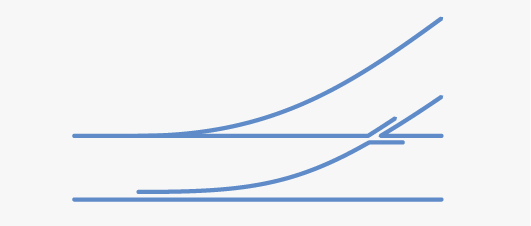
This is a basic turnout shape, in which another single track diverges either to the right or left side from a straight track.
-
Split turnout
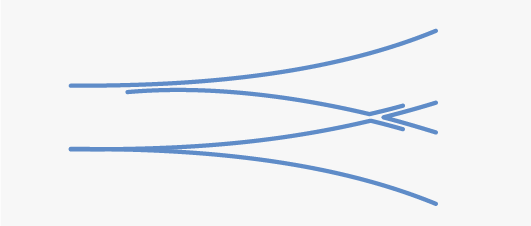
A straight track diverges symmetrically in two directions to the left and right sides.
-
Unsymmetrical split turnout
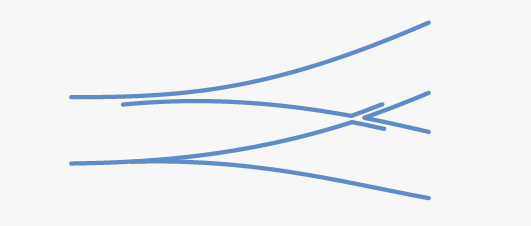
A straight track diverges asymmetrically in two directions to the left and right sides.
-
Double-curve turnout in same direction
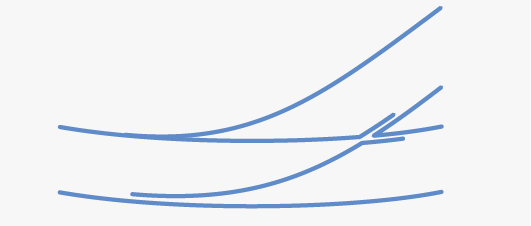
Another track from a curved track diverges toward the inside of the curved track.
-
Double-curve turnout in opposite direction
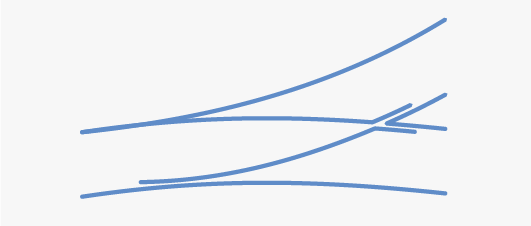
Another track from a curved track diverges toward the outside of the curved track.
-
Run-over type turnout
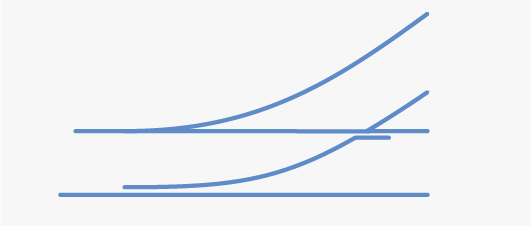
A straight or curved main line runs over the rails and diverges. This type of turnout is usually used to divert train carriages to the safe side of the track to prevent them from running on to the main line.
-
Diamond crossing
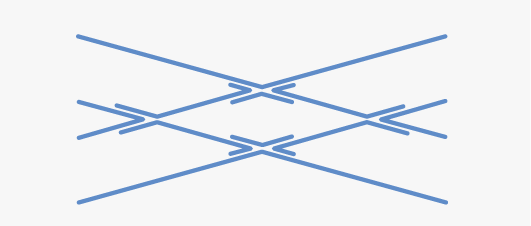
Two tracks intersect in a diamond-like pattern.
-
Crossover
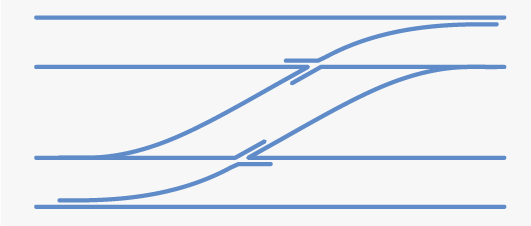
In this track structure, two side-by-side tracks are connected using two turnouts.
-
Scissors crossing
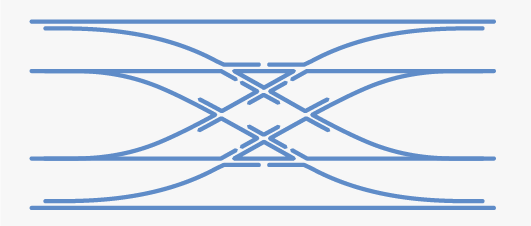
Two side-by-side tracks intersect using double crossovers. This turnout basically comprises four single turnouts and a diamond crossing.
-
Single slip switch
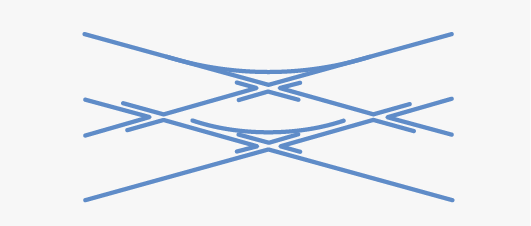
This track structure has a crossover placed on one side of a diamond crossing.
-
Double slip switch
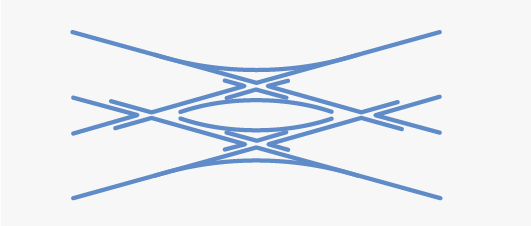
This track structure has a crossover placed on both sides of a diamond crossing.
-
Mixed gauge turnout
(with three rails)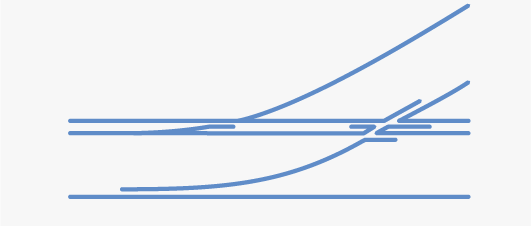
This track structure diverges into a three-rail track. The image shows narrow gauge tracks diverging from the three-rail track, but different tracks can be combined to create a variety of structures.

